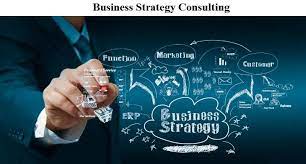Navigating Success: The Power of Strategy Consultancy in Today’s Business Landscape
Title: Unleashing the Power of Strategy Consultancy for Business Success
Introduction:
In today’s fast-paced and competitive business landscape, companies face numerous challenges in navigating market complexities, identifying growth opportunities, and staying ahead of the curve. This is where strategy consultancy plays a pivotal role. Strategy consultants are trusted advisors who bring a fresh perspective, expertise, and strategic thinking to help businesses achieve their goals and drive sustainable success.
Understanding Strategy Consultancy:
Strategy consultancy is a specialized field that focuses on providing expert advice to organizations seeking to enhance their overall performance, competitiveness, and long-term viability. These consultants work closely with businesses across various industries to develop effective strategies that align with their vision, mission, and objectives.
The Role of Strategy Consultants:
Strategy consultants bring a wealth of knowledge and experience to the table. They possess a deep understanding of market dynamics, industry trends, and best practices. By conducting thorough analyses and assessments, they identify areas for improvement and devise tailored strategies that address specific challenges faced by their clients.
Key Benefits of Strategy Consultancy:
- Objective Insights: External strategy consultants provide an unbiased perspective on your business operations. They can identify blind spots or inefficiencies that may go unnoticed internally.
- Market Expertise: Strategy consultants have in-depth knowledge of market trends, customer expectations, emerging technologies, and competitive landscapes. This enables them to provide valuable insights into potential growth opportunities or threats.
- Strategic Planning: Consultants work closely with business leaders to develop comprehensive strategic plans that outline clear goals, priorities, resource allocation strategies, and timelines. This ensures a focused approach towards achieving desired outcomes.
- Risk Mitigation: Through rigorous analysis and scenario planning, strategy consultants help businesses anticipate potential risks or disruptions in the market. They assist in developing contingency plans to minimize negative impacts on operations.
- Organizational Transformation: Consultants support businesses in implementing strategic initiatives by providing change management expertise. They guide organizations through transitions smoothly while ensuring employee buy-in and alignment with the new strategy.
- Efficiency and Cost Optimization: Strategy consultants identify opportunities to streamline processes, improve operational efficiency, and reduce costs. They help businesses make informed decisions regarding resource allocation, budgeting, and investment strategies.
Choosing the Right Strategy Consultant:
When selecting a strategy consultant, it is crucial to consider their industry expertise, track record of success, and cultural fit with your organization. Look for consultants who possess strong analytical skills, excellent communication abilities, and a collaborative approach to problem-solving.
Conclusion:
In an era of constant change and increasing competition, businesses need strategic guidance to thrive. Strategy consultancy offers a valuable partnership that empowers organizations to adapt, innovate, and achieve sustainable growth. By leveraging the expertise of these consultants, businesses can overcome challenges, seize opportunities in the market, and position themselves for long-term success. So why wait? Embrace the power of strategy consultancy today and unlock your business’s full potential.
8 Essential Tips for Strategy Consultancy Success in the UK
- Research the industry
- Develop strong problem-solving skills
- Gather experience
- Build relationships
- Stay current
- Be flexible
- Have an entrepreneurial spirit
- Learn from others
Research the industry
When it comes to strategy consultancy, one valuable tip that can significantly impact the success of your business is to thoroughly research the industry in which you operate. Researching the industry allows you to gain a deeper understanding of market dynamics, customer preferences, emerging trends, and competitive landscapes.
By conducting comprehensive research, you can identify key opportunities for growth and innovation. It enables you to stay ahead of the curve, anticipate market shifts, and make informed strategic decisions. Here are a few reasons why industry research is crucial in strategy consultancy:
- Market Insights: Industry research provides valuable insights into consumer behaviour, market trends, and changing customer needs. Understanding these factors helps you tailor your strategies to meet the demands of your target audience effectively.
- Competitive Analysis: Researching your competitors allows you to identify their strengths, weaknesses, and unique selling points. This knowledge helps you differentiate yourself in the market and develop strategies that give you a competitive edge.
- Identifying Opportunities: Through industry research, you can spot untapped markets or gaps in the existing market that present opportunities for growth. This knowledge allows you to develop strategies that focus on capturing these opportunities and expanding your business.
- Risk Assessment: Researching the industry helps you assess potential risks or challenges that may impact your business operations. By understanding these risks in advance, you can develop contingency plans and mitigate potential negative impacts effectively.
- Innovation and Adaptation: Industry research keeps you updated on emerging technologies, new business models, and changing consumer preferences. This knowledge enables you to innovate within your industry and adapt to evolving market conditions proactively.
- Strategic Decision-Making: Armed with comprehensive industry knowledge, you can make more informed strategic decisions regarding product development, marketing campaigns, resource allocation, partnerships, and expansion plans.
Remember that industry research is an ongoing process as markets continue to evolve rapidly. Regularly monitoring trends and staying up-to-date with new developments ensures that your strategies remain relevant and effective.
In conclusion, research is a critical aspect of strategy consultancy. It provides you with the necessary insights and knowledge to make informed decisions, identify growth opportunities, mitigate risks, and stay ahead of the competition. By investing time and effort into researching your industry, you can create strategies that drive sustainable success for your business.
Develop strong problem-solving skills
Develop Strong Problem-Solving Skills: Unlocking Success in Strategy Consultancy
In the world of strategy consultancy, one tip stands out as essential for success: developing strong problem-solving skills. Strategy consultants are faced with complex challenges every day, and their ability to effectively address these challenges is crucial in delivering valuable solutions to clients.
Why are strong problem-solving skills so important in strategy consultancy? Let’s explore:
- Identifying the Root Cause: Effective problem-solving starts with identifying the root cause of a challenge. Strategy consultants must possess analytical thinking abilities to dissect complex issues and understand the underlying factors contributing to them. By getting to the core of a problem, consultants can develop targeted strategies that address the fundamental issues at hand.
- Developing Innovative Solutions: In strategy consultancy, clients often seek fresh perspectives and innovative solutions to stay ahead of their competition. Strong problem-solving skills enable consultants to think outside the box and come up with creative approaches that bring about transformative change. This ability to generate innovative ideas adds value and differentiates consultants from others in the industry.
- Structured Approach: Problem-solving requires a structured approach, especially when dealing with intricate issues that involve multiple variables and stakeholders. Consultants must be able to break down problems into manageable components, develop frameworks for analysis, and systematically evaluate potential solutions. This structured approach ensures thoroughness and clarity throughout the problem-solving process.
- Collaboration and Communication: Effective problem-solving in strategy consultancy often involves collaboration with clients and colleagues. Consultants must be skilled communicators who can actively listen, ask probing questions, and facilitate discussions that lead to insights. Collaborative problem-solving not only strengthens relationships but also enhances the quality of solutions by drawing on diverse perspectives.
- Adaptability in Dynamic Environments: The business landscape is constantly evolving, presenting new challenges that require adaptability from strategy consultants. Strong problem-solving skills enable consultants to navigate changing circumstances effectively while maintaining focus on client objectives. They can quickly assess new situations, adjust strategies, and find solutions that align with evolving market dynamics.
Developing strong problem-solving skills is a continuous process that requires dedication and practice. It involves honing critical thinking abilities, staying curious and open-minded, and seeking opportunities to solve complex problems. Strategy consultants who actively work on enhancing their problem-solving skills position themselves as trusted partners who can tackle any challenge thrown their way.
In conclusion, the ability to solve problems effectively is a cornerstone of success in strategy consultancy. By developing strong problem-solving skills, consultants can identify root causes, develop innovative solutions, apply structured approaches, foster collaboration, and navigate dynamic environments. Embracing this tip will undoubtedly unlock success for strategy consultants and make them invaluable assets to their clients’ growth and prosperity.
Gather experience
When it comes to strategy consultancy, one invaluable tip stands out: gather experience. In the dynamic world of business, experience is a powerful asset that can shape the success of any organization.
Engaging with experienced strategy consultants can provide businesses with a wealth of knowledge and insights. These professionals have worked with diverse clients across various industries, giving them a deep understanding of market dynamics, emerging trends, and proven strategies.
By partnering with experienced consultants, businesses gain access to a vast repository of best practices and lessons learned. Consultants who have encountered similar challenges in the past can offer valuable guidance on how to navigate complex situations and overcome obstacles.
Moreover, experienced strategy consultants bring fresh perspectives to the table. They can spot opportunities that may have been overlooked internally and offer innovative solutions that drive growth and competitiveness.
The benefits of gathering experience extend beyond strategic planning. Experienced consultants possess refined analytical skills honed through years of practice. They can conduct comprehensive assessments, identify areas for improvement, and develop data-driven strategies that align with business goals.
Additionally, working alongside experienced consultants provides an opportunity for organizational learning. The knowledge gained from these collaborations can be internalized within the company, allowing teams to enhance their own strategic thinking capabilities over time.
To make the most out of this tip on strategy consultancy, it is crucial to select consultants who have relevant industry expertise and a proven track record. Their experience should align with your business’s unique needs and objectives.
In conclusion, gathering experience through engaging with seasoned strategy consultants is an essential step towards achieving success in today’s competitive business landscape. By tapping into their expertise and insights, businesses can gain a competitive advantage by making informed decisions based on tried-and-tested strategies. So don’t hesitate to seek out experienced professionals who can guide your organization towards sustainable growth and long-term success.
Build relationships
Building strong relationships is a crucial tip when it comes to strategy consultancy. In the world of business, success often hinges on the strength of connections and collaborations with clients, stakeholders, and industry partners. Here’s why building relationships is essential in strategy consultancy:
- Trust and Credibility: Building relationships fosters trust and credibility between consultants and their clients. When clients have confidence in their consultants, they are more likely to share critical information, challenges, and goals openly. This trust lays the foundation for effective collaboration and strategic decision-making.
- Deep Understanding: Developing strong relationships allows consultants to gain a deep understanding of their clients’ businesses, including their culture, values, objectives, and challenges. This knowledge enables consultants to provide tailored solutions that align with the specific needs of their clients.
- Effective Communication: Strong relationships facilitate open lines of communication between consultants and clients. Effective communication is vital for sharing ideas, discussing strategies, seeking feedback, and ensuring everyone is on the same page throughout the consultancy process.
- Collaboration and Teamwork: Building relationships extends beyond just client-consultant interactions; it also involves fostering connections within the broader team or organization. Consultants who prioritize relationship-building encourage collaboration among team members, leading to enhanced problem-solving, creativity, and a shared sense of purpose.
- Long-Term Partnerships: Strategy consultancy is not just about short-term projects; it often involves long-term partnerships aimed at achieving sustained success. By building strong relationships with clients over time, consultants can become trusted advisors who are relied upon for ongoing support in navigating complex business challenges.
- Referrals and Recommendations: Positive relationships can lead to referrals and recommendations from satisfied clients. Word-of-mouth recommendations are invaluable in attracting new business opportunities for strategy consultants.
- Industry Insights: Strong relationships with industry partners allow strategy consultants to stay updated on emerging trends, best practices, and market insights. These connections provide access to valuable resources that can further enhance the quality and effectiveness of consultancy services.
In summary, building relationships is a fundamental aspect of strategy consultancy. It establishes trust, enables effective communication, fosters collaboration, and opens doors to long-term partnerships. By prioritizing relationship-building, strategy consultants can create a solid foundation for success and deliver exceptional value to their clients.
Stay current
In the dynamic world of business, staying current is a crucial tip for maximizing the benefits of strategy consultancy. As markets evolve, consumer preferences shift, and technologies advance, it is essential for businesses to keep pace with these changes to remain competitive.
Strategy consultants are well-versed in industry trends and emerging developments. They continuously monitor the market landscape, conduct research, and analyze data to stay ahead of the curve. By partnering with a strategy consultant, businesses can tap into this wealth of knowledge and gain valuable insights into current market dynamics.
Staying current allows businesses to identify new opportunities for growth and innovation. Strategy consultants can help companies recognize emerging trends or disruptive technologies that could reshape their industry. By keeping a finger on the pulse of these changes, businesses can proactively adapt their strategies to capitalize on new opportunities before their competitors do.
Moreover, staying current enables businesses to navigate potential risks or challenges effectively. Strategy consultants can help organizations anticipate market shifts or regulatory changes that may impact their operations. By staying informed and agile, businesses can develop contingency plans and mitigate potential risks before they become major obstacles.
Additionally, staying current fosters a culture of continuous improvement within an organization. By embracing change and seeking out new knowledge, businesses can foster innovation and drive ongoing success. Strategy consultants can help companies implement processes for monitoring industry developments regularly and integrating them into strategic decision-making.
To stay current in today’s fast-paced business environment, businesses should invest in ongoing learning initiatives for their employees. This may include attending industry conferences, participating in webinars or workshops, subscribing to relevant publications or newsletters, and fostering a culture of curiosity within the organization.
In conclusion, staying current is a vital tip when engaging with strategy consultancy services. By leveraging the expertise of strategy consultants who stay abreast of market trends and emerging developments, businesses can gain a competitive advantage by identifying opportunities for growth while effectively managing potential risks. Embracing a mindset of continuous learning ensures that companies remain agile, innovative, and well-positioned for long-term success in an ever-changing business landscape.
Be flexible
Flexibility: The Key to Success in Strategy Consultancy
In the dynamic world of business, being flexible is not just a desirable trait; it is a necessity. This holds especially true in the realm of strategy consultancy. As businesses face ever-changing market conditions, shifting customer preferences, and unpredictable disruptions, the ability to adapt and be flexible becomes paramount.
Strategy consultants understand that rigid plans and fixed mindsets can hinder progress. They recognize that successful strategies require constant evaluation, adjustment, and sometimes even complete pivots. Here’s why being flexible is crucial in strategy consultancy:
Embracing Change:
The business landscape is constantly evolving, driven by technological advancements, market trends, and competitive forces. Strategy consultants must be open to change and willing to reassess their approaches regularly. Being flexible allows them to adapt strategies swiftly based on emerging opportunities or unforeseen challenges.
Customizing Solutions:
Each business has its unique set of circumstances, goals, and constraints. A one-size-fits-all approach rarely works effectively in strategy consultancy. By being flexible, consultants can tailor their recommendations and solutions to suit the specific needs of their clients. This customization ensures that strategies align with the organization’s culture and capabilities.
Agile Decision-making:
In rapidly changing environments, quick decision-making is crucial for staying ahead of the competition. Flexibility enables strategy consultants to gather relevant information promptly, assess risks and benefits efficiently, and make informed decisions in a timely manner. This agility helps businesses seize opportunities before they pass by.
Adapting to Feedback:
Feedback from stakeholders is invaluable in refining strategies and driving success. Being flexible allows strategy consultants to actively listen to feedback from clients, employees, customers, or other key stakeholders. They can then use this feedback as valuable input for adjusting their strategies accordingly.
Managing Uncertainty:
Uncertainty is an inherent part of any business environment – especially during times of economic volatility or disruptive events like pandemics. Flexibility enables strategy consultants to navigate uncertainty by considering multiple scenarios, developing contingency plans, and adjusting strategies as needed. This proactive approach helps businesses mitigate risks and seize opportunities amidst uncertainty.
Continuous Learning:
Strategy consultants must stay updated on industry trends, best practices, and emerging technologies. Being flexible means embracing a growth mindset and a commitment to continuous learning. By staying curious and adaptable, consultants can bring fresh insights and innovative ideas to their clients.
In conclusion, being flexible is not just a suggestion; it is a fundamental principle in strategy consultancy. The ability to adapt, adjust, and embrace change is what sets successful consultants apart. By being flexible, strategy consultants can navigate the complexities of the business world effectively, develop robust strategies, and drive sustainable success for their clients. So remember: in the realm of strategy consultancy, flexibility is the key that unlocks endless possibilities for growth and achievement.
Have an entrepreneurial spirit
In the realm of strategy consultancy, one tip that stands out is to have an entrepreneurial spirit. While strategy consultants may not be starting their own businesses, adopting an entrepreneurial mindset can greatly enhance their effectiveness and impact.
Having an entrepreneurial spirit means thinking like a business owner – being proactive, innovative, and willing to take calculated risks. Here’s why this tip is crucial in the world of strategy consultancy:
- Embracing Innovation: Entrepreneurs are known for their ability to spot opportunities and think outside the box. By bringing this mindset to strategy consultancy, consultants can help businesses identify untapped markets, develop innovative solutions, and stay ahead of their competitors.
- Driving Change: Entrepreneurs are change-makers who challenge the status quo. Strategy consultants with an entrepreneurial spirit can drive meaningful change within organizations by questioning existing strategies, processes, and structures. They can inspire a culture of continuous improvement and foster a willingness to adapt to new market realities.
- Taking Calculated Risks: Successful entrepreneurs understand that risk-taking is essential for growth. Likewise, strategy consultants must be comfortable with taking calculated risks when advising businesses on strategic decisions. This includes exploring new markets, investing in emerging technologies, or pursuing unconventional strategies that have the potential for high rewards.
- Seizing Opportunities: Entrepreneurs have a keen eye for spotting opportunities others may overlook. Strategy consultants with an entrepreneurial mindset can help businesses identify niche markets or emerging trends that could be leveraged for growth. They can assist in developing strategies to capitalize on these opportunities effectively.
- Cultivating Agility: In today’s rapidly changing business landscape, agility is key to survival and success. Entrepreneurs excel at adapting quickly to market shifts and changing customer demands. Strategy consultants who embody this spirit can help organizations become more agile by developing flexible strategies that allow for rapid adjustments as needed.
- Inspiring Creativity: Entrepreneurship thrives on creativity and thinking beyond boundaries. Strategy consultants who encourage and foster creativity within organizations can help unlock innovative ideas and solutions. They can facilitate brainstorming sessions, encourage cross-functional collaboration, and create an environment that embraces diverse perspectives.
By embracing an entrepreneurial spirit, strategy consultants can bring a fresh perspective, drive innovation, and ignite transformative change within organizations. This approach enables them to go beyond traditional consulting methods and deliver exceptional value to their clients.
In conclusion, having an entrepreneurial spirit is a valuable tip for strategy consultants. By adopting this mindset, they can unleash their full potential as change-makers, innovators, and strategic advisors. So, whether you’re a consultant or a business owner seeking consultancy services, remember the power of the entrepreneurial spirit in shaping successful strategies for growth and prosperity.
Learn from others
When it comes to strategy consultancy, one of the most valuable tips is to learn from others. In a rapidly evolving business landscape, it’s essential to stay informed about industry trends, best practices, and success stories. By studying and understanding the strategies that have worked for other businesses, you can gain valuable insights and apply them to your own organization.
Learning from others in the realm of strategy consultancy offers several benefits. Firstly, it allows you to tap into a vast wealth of knowledge and experience that has been accumulated by professionals in your industry or related fields. This knowledge can provide you with fresh perspectives and innovative ideas that can be adapted to suit your unique business challenges.
Additionally, studying successful strategies implemented by others helps you identify common patterns or key factors that contribute to their achievements. By understanding these patterns, you can make informed decisions when developing your own strategies and increase the likelihood of success.
Furthermore, learning from others also means being open to feedback and seeking advice from experts or mentors in the field of strategy consultancy. Engaging in discussions or seeking guidance from experienced professionals can provide valuable insights into potential pitfalls or opportunities that you may have overlooked.
To effectively learn from others in strategy consultancy, consider attending industry conferences, workshops, or networking events where you can connect with like-minded professionals. Engage in thought-provoking conversations, ask questions, and share experiences with others who have faced similar challenges.
In addition to offline interactions, take advantage of online resources such as industry forums or blogs where professionals share their expertise and discuss emerging trends. Follow thought leaders on social media platforms who regularly provide valuable insights into strategy development and implementation.
Remember that learning from others doesn’t mean blindly copying their strategies. Rather, it involves analyzing their approaches critically and adapting them to suit your specific business context. Each organization is unique with its own set of goals, values, and challenges; therefore, customization is key when applying lessons learned from others.
In conclusion, learning from others is an invaluable tip in the field of strategy consultancy. By studying successful strategies, seeking advice from experts, and engaging in industry conversations, you can gain valuable insights that can guide your own strategic decision-making process. Embrace a mindset of continuous learning and improvement, and you’ll be well-equipped to navigate the ever-changing business landscape with confidence.









